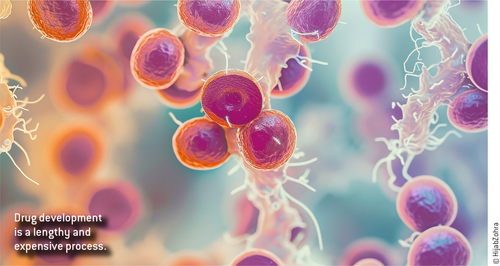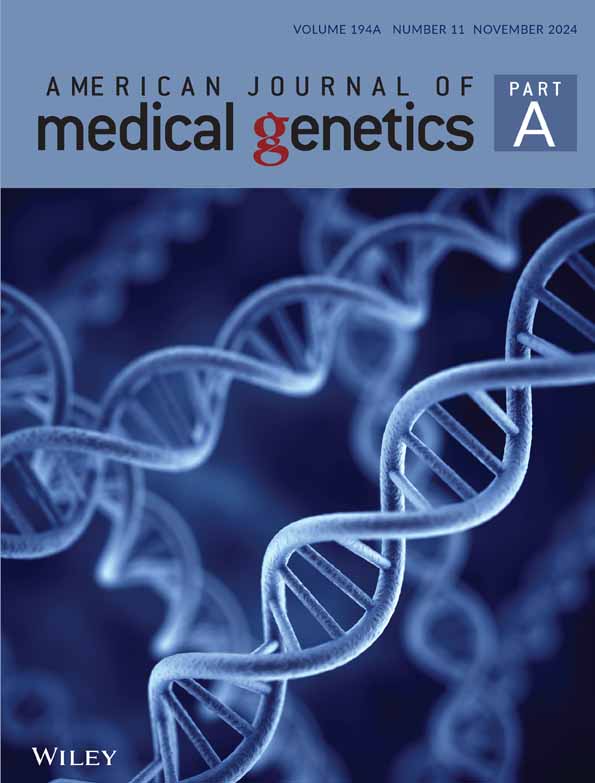Genetic Factors Linked to Early Clinical Trial Termination
Use of genetic evidence in drug development may decrease trial failures and boost efficacy and safety of new products
Getting a drug to the marketplace is a lengthy and expensive process, especially because most new products never make it past the early stages of development. It takes an estimated 10 to 15 years to develop a new drug, at a cost that can reach hundreds of millions of dollars (Sertkaya et al, 2024). Yet most drug candidates never advance from clinical trials to the approval stage. The reasons for such product failures vary, and reports suggest that lack of efficacy or unforeseen safety issues explain 79% of these setbacks (Razuvayevskaya et al, 2024).
However, researchers have now found a link between genetic evidence and the outcome of clinical trials (Razuvayevskaya et al, 2024). Their analysis showed that clinical trials were more likely to be stopped for lack of efficacy when strong genetic evidence was missing in human populations or in animal models, and that some trials were more likely to stop for safety reasons when the target gene was highly constrained in humans and if it was widely expressed across tissues.
“Whereas previous efforts tried to understand how genetics influences clinical trial progression, in this study we tried to understand how the availability of genetics influences the most likely outcome of every trial and failure,” explains study author David Ochoa, PhD, Platform Coordinator for Open Targets, an initiative to generate evidence on the validity of therapeutic targets based on genome-scale experiments and analysis at the European Molecular Biology Laboratory, European Bioinformatics Institute (EMBL-EBI) in Cambridgeshire, UK.
Genetics also plays a role in safety data. “Understanding the phenotypic consequences of modulation, the function of a gene can inform us about the potential phenotypic consequences of modulating a gene product with a drug,” Dr. Ochoa says. “In this study, we mostly tried to understand how genome-wide factors help us understand how constrained the modulation of certain genes might be. Targeting highly constrained genes shows an increased chance of disrupting the progression of a clinical trial.”
The Study
For their study, Dr. Ochoa and colleagues from the EMBL-EBI created a machine learning approach to analyze the reasons for halting 28,842 clinical trials. They created a natural language processing model that was used to classify the “stop” reasons into 17 categories. For each clinical trial, they evaluated the strength of the association between the drug target and the disease indication, using 13 sources of genetic evidence that were available in the Open Targets Platform.
Results showed that the most common reason for a stopped trial was insufficient enrollment (36.67%); other reasons occurred in many studies before the accrual of any study results. Some studies (3.38%) were classified as stopped due to safety issues or side effects, and 7.6% were halted due to “negative” reasons that included questioning of efficacy or value. After stratifying the stopped studies into the reasons they were halted, the teams found that those trials that were stopped for negative outcomes, such as lack of efficacy or futility, displayed a significant decrease of genetic support for the intended pharmacological target in the same indication (OR = 0.61, P = 6×10-18).
Acknowledging that the clinical trials analyzed in this study “represent only a relatively small fraction of all the failed studies,” Dr. Ochoa says the researchers “believe they represent a good sample to understand the factors that could help us de-risk future studies,”
Expert Commentary
“It's quite intuitive that genetic data would contribute to the completion of a clinical trial, and this AI-based research confirms that premise,” comments William A. Gahl, MD, PhD, Senior Investigator, Medical Genetics Branch, National Human Genome Research Institute, weighing in on the data. “Of course, the type of genetic information employed in different clinical trials will vary widely, and it would be of great interest to know what specific genetic data are most useful. In addition, having genetic data for a clinical trial probably means that there is increased overall information on the participants, so this could be a confounding factor.”
“Effectively, there is a survival bias on drugs with strong causal links between the target and the disease.”
– David Ochoa, PhD
Finally, Dr. Gahl stresses that comprehensive genetic data could reveal risk factors for side effects. “These would include the coexistence of other metabolic disorders or aberrant pharmacogenetics that could influence drug catabolism,” he says.
Brendan Lee, MD, PhD, Professor and Chairman, Department of Molecular and Human Genetics, Baylor College of Medicine, Houston, Texas, points out that using genetic factors to inform clinical trial targets as well as clinical response can increase the likelihood of a specific trial design's success. “It does this by decreasing heterogeneity in a clinical population by stratifying based on ‘positive' responder status–such as efficacy, or to the ‘negative' responder, such as toxicity,” he says. “Note this may or may not translate to real world effectiveness if such a drug was to be deployed to a larger heterogeneous population. This is distinct from using human genetic discovery to identify targets of drugs.”
Overall, the study's results support the growing use of human genetics to evaluate targets for drug discovery programs. “Human genetics can be understood as a natural perturbation experiment which help us understand how variation on our genomes alters our phenotype,” Dr. Ochoa says. “When that phenotype is a disease, we can use genetics to trace back to the likely gene that caused the disease. If we can collectively better understand the causal gene, we would be able to define more targeted therapies, fail more rapidly and less expensively, and ultimately improve patients' care.”





